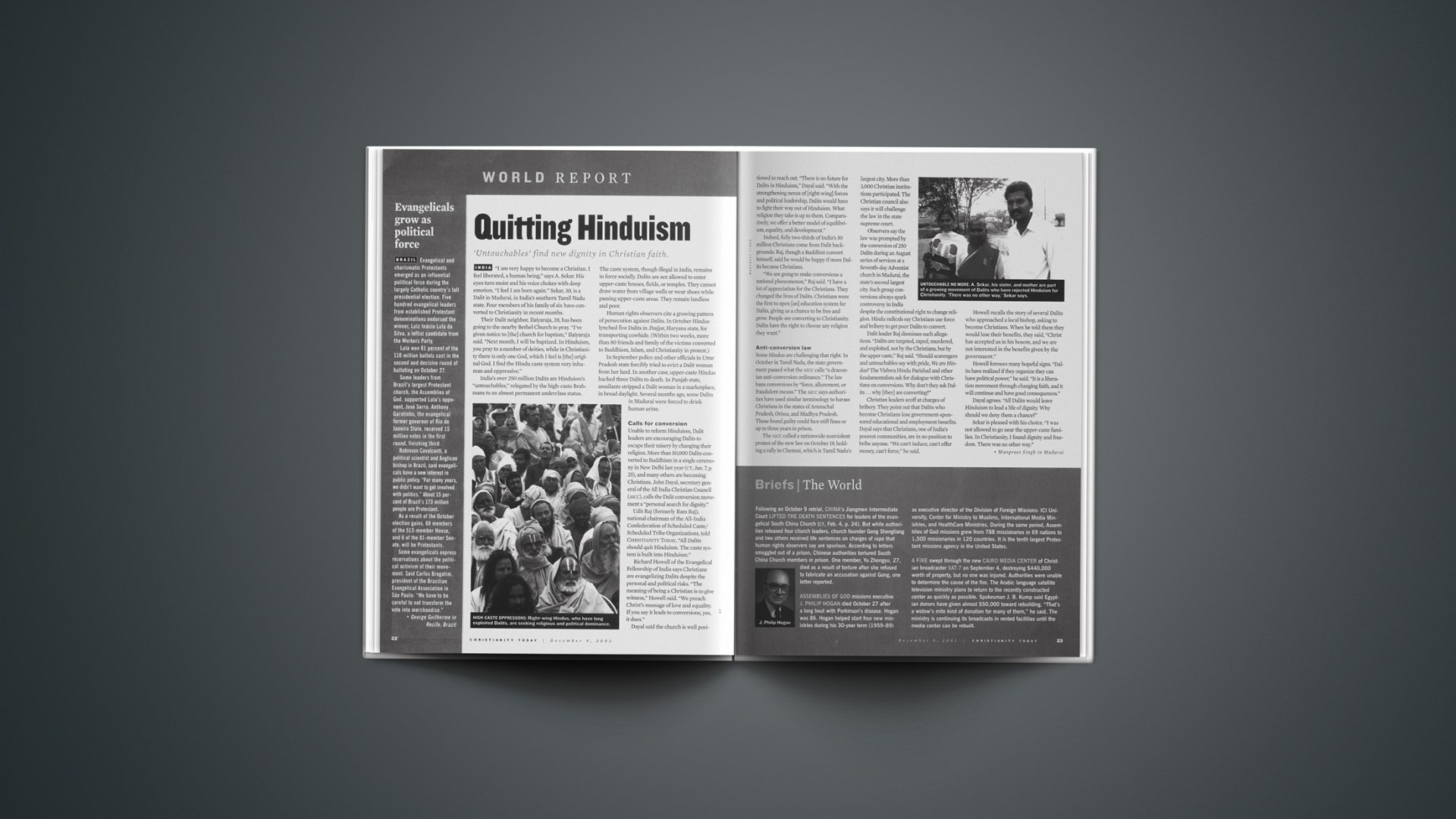Evangelical and charismatic Protestants emerged as an influential political force during the largely Catholic country’s fall presidential election. Five hundred evangelical leaders from established Protestant denominations endorsed the winner, Luiz Inácio Lula da Silva, a leftist candidate from the Workers Party.
Lula won 61 percent of the 110 million ballots cast in the second and decisive round of balloting on October 27.
Some leaders from Brazil’s largest Protestant church, the Assemblies of God, supported Lula’s opponent, José Serra. Anthony Garotinho, the evangelical former governor of Rio de Janeiro State, received 15 million votes in the first round, finishing third.
Robinson Cavalcanti, a political scientist and Anglican bishop in Brazil, said evangelicals have a new interest in government and public policy. “For many years, we didn’t want to get involved with politics.” Protestants are growing at a faster rate than the overall population of Brazil. About 75 percent of Brazil’s 173 million people are Roman Catholic.
As a result of the October election gains, 60 members of the 513-member House, and 6 of the 81-member Senate, will be Protestants.
Some evangelicals express reservations about political activism in their movement. Said Baptist pastor Carlos Bregatim, president of the Brazilian Evangelical Association in São Paulo: “We have to be careful to not transform the vote into merchandise, or the pulpit into a platform.”
Copyright © 2002 Christianity Today. Click for reprint information.
Related Elsewhere
For more articles on Brazil, see Christianity Today’sWorld Report and Yahoo full coverage.










